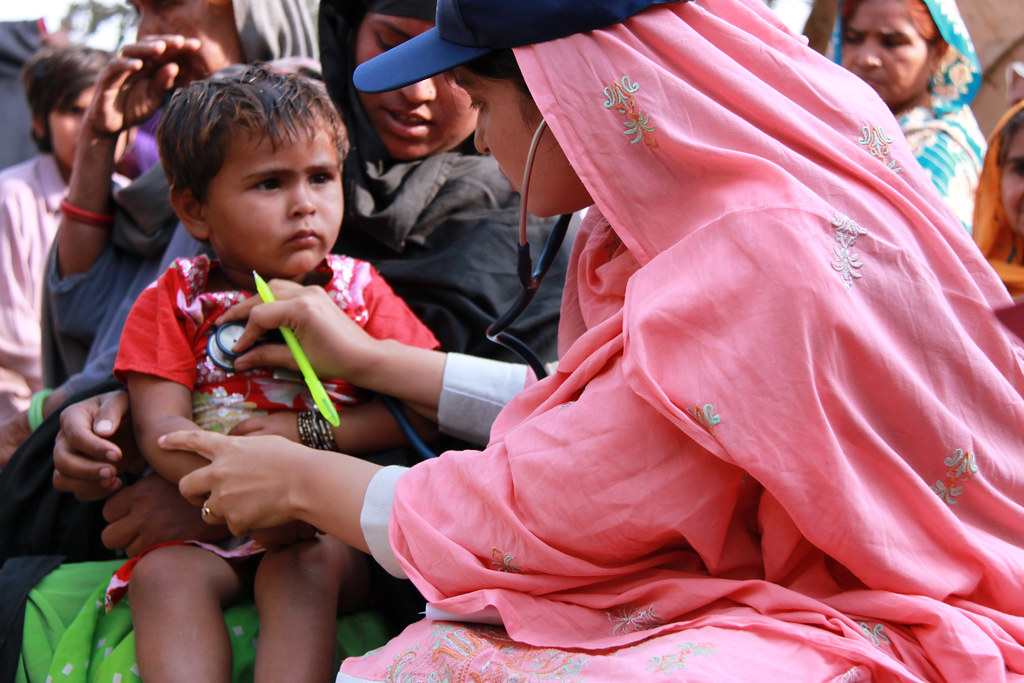Is Pakistan about to fumble away a public health victory?

- Country:
- Pakistan
When Imran Khan campaigned for the premiership of Pakistan on an “Islamic welfare” ticket last year, his Movement for Justice was unequivocal about the need to address one of Pakistan’s most pressing needs – its chronically underfunded and underserviced healthcare system. Khan himself has spent decades advocating for an increased focus on public health and especially the fight against cancer, even opening the Shaukat Khanum Memorial Cancer Hospital and Research Centre in Lahore in 1994 as a tribute to his late mother.
Since taking office, Khan has spoken out extensively about his plans for improving affordable care, including widening the health insurance program to provide cover for millions more families. Speaking at a recent meeting with leaders from the Global Fund – an organization focused on the eradication of communicable diseases in developing countries – Khan reiterated his government’s commitment to upgrading healthcare facilities and opening up broader access to medical care across the country.
However, at less than three percent of GDP, public spending on healthcare remains woefully short of demand, with hospitals lacking the space or resources they need to function properly. Pakistan has the highest infant mortality rate in the world, ranking among the bottom quarter of countries in the United Nations’ human development index. Pakistan’s public hospitals are overcrowded and inefficient, while bureaucratic governance is blamed for funding delays.
Undermining key health initiatives
Against this problematic backdrop of failing healthcare services, Khan’s own government may have just committed a grievous unforced error on the road to making Pakistani citizens healthier. Beginning this week, the Islamabad High Court will be required to weigh in on a Federal Board of Revenue (FBR) tender process facing legal challenges from just about all of its major bidders. Why? Because the FBR has effectively handed the tender – for a system to track and trace tobacco products – to a company linked to the tobacco industry, in direct contravention of World Health Organization (WHO) guidance.
Track-and-trace (T&T) systems are an important part of the WHO’s Framework Convention on Tobacco Control (FCTC), designed to foil the illicit tobacco trade and ensure tobacco tax increases have their intended impact on smoking rates, all while topping up government coffers. With Islamabad under pressure from the International Monetary Fund (IMF) to ensure its track-and-trace system is operational by spring next year – a directive linked to the release of a $6 billion loan – Pakistan’s government is clearly in a rush to find a service provider. There are conditions to the implementation of such as system, however, with one of the main prerequisites being that Pakistan must ensure any T&T solution is independent of the tobacco industry.
Seemingly ignoring that stipulation, the FBR has granted its licence for supplying a tobacco track-and-trace system to the National Radio & Telecommunication Corporation (NRTC). According to industry experts, NRTC has no demonstrable experience in T&T provision. In fact, instead of implementing its own IT solution, NRTC has partnered with Inexto, a company run by former Philip Morris International (PMI) employees and offering the PMI-developed Codentify track-and-trace system. In effect, this award gives the tobacco industry a self-policing hand in the supply chain.
Even on its own merits, there are serious concerns over whether Codentify would be up to the task. The system uses unsecured, commercially available equipment and offers negligible protection against the cloning or recycling of codes, with the inkjet printers used to generate codes additionally vulnerable to tampering.
The path to a healthier population
Why does this matter? Because, according to analysis in the British Medical Journal (BMJ), imposing higher taxes on tobacco could reduce consumption across South Asia by a third, preventing 35-45 million premature deaths. Conversely, Big Tobacco has a vested interest in ensuring cigarettes remain affordable. Higher tax rates mean higher incentives for tobacco smuggling and black market sales, which is why traceability strategies are so crucial.
This is doubly true in a country like Pakistan, which has long struggled to fund essential public services. Despite the urgency of implementing an effective track-and-trace system, the FBR has seemingly thrown FCTC compatibility out the window and instead opted for a provider whose services have been rejected by name by the WHO itself. Even more disturbingly, they did so after a convoluted process that saw all other candidates for the tender turned down on technical grounds, while the NRTC was inexplicably excused for drastically (and, it claims, inadvertently) misrepresenting its prices.
Unfortunately, this would not be the first time the tobacco industry has gotten the better of Pakistan’s public health policy. The sector has a history of fighting planned reforms in Pakistan, lobbying government ministers to nix larger health warnings while local politicians occupy tobacco company board positions.
Without effective regulatory systems in place to overcome this level of entrenched influence, even Imran Khan – who has done as much to fight cancer as anyone in Pakistan – will find his promises to make Pakistanis healthier ultimately ringing hollow. Tragically, more than a thousand children take up smoking every day in Pakistan, representing a new customer base the industry is willing to go to radical lengths to keep hooked.
By failing to hold the industry accountable and instead giving it a level of control over its own tax liabilities, the FBR award represents a failure of reform on both healthcare and revenue simultaneously. The responsibility now rests with the courts to save the government from itself.
- READ MORE ON:
- Public health
- Pakistan public health
- Pakistan healthcare
- FIRST PUBLISHED IN:
- Devdiscourse

 Devdiscourse News Desk
Devdiscourse News Desk









